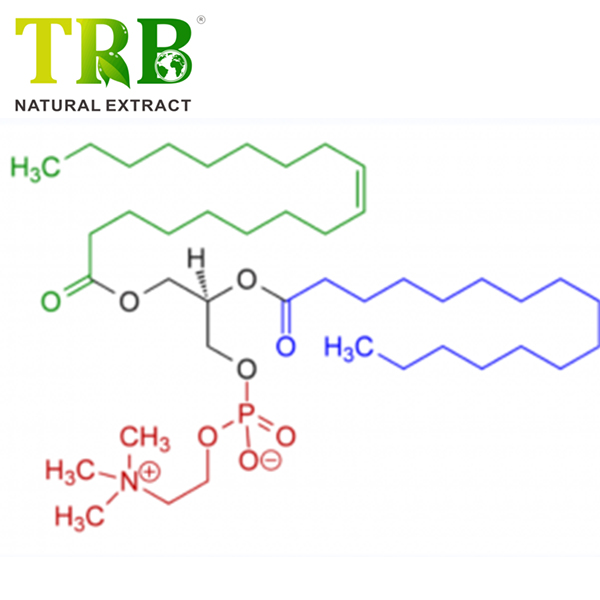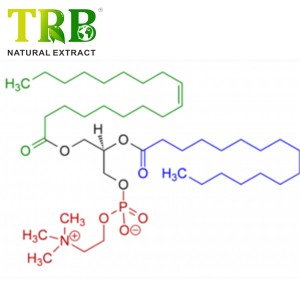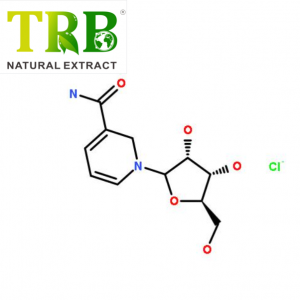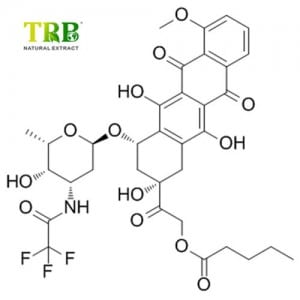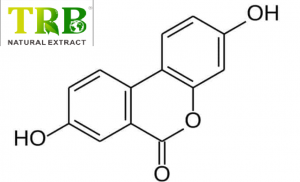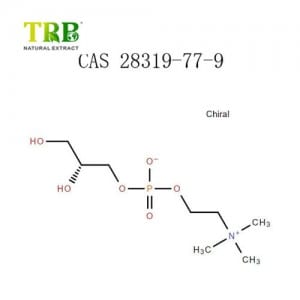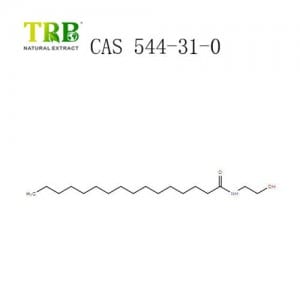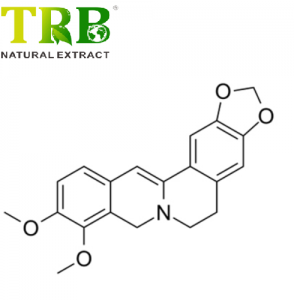Fosfatidilcholiną sudaro cholino „galva“ ir glicerolio fosfolipidai.Glicerolio fosfolipidų uodega gali būti įvairių riebalų rūgščių.Paprastai viena uodega yra sočiųjų riebalų rūgščių, kita - nesočiųjų riebalų rūgščių.Tačiau kai kurios iš jų yra nesočiosios riebalų rūgštys.Pavyzdžiui, gyvūnų plaučių fosfatidilcholinas turi didesnę dipalmitoilfosfatidilcholino dalį.
Produkto pavadinimas: Phosphatidylcholine PC
Kitas pavadinimas: 1,2-diacil-sn-glicero-3-fosfocholinas, PC
Produkto specifikacija: skysta / arba vaškinė kieta medžiaga: apie 60%
milteliai / granulės: 10–98 %,Populiarios specifikacijos 20%, 50%, 98%
Nemokamas pavyzdys: yra
Išvaizda: šviesiai geltoni arba geltoni milteliai, aliejus arba vaško pavidalo kieta medžiaga
Bandymo metodas: HPLC
Galiojimo laikas: 2 metai
Fosfatidilcholiną sudaro cholino „galva“ ir glicerolio fosfolipidai.Glicerolio fosfolipidų uodega gali būti įvairių riebalų rūgščių.Paprastai viena uodega yra sočiųjų riebalų rūgščių, kita - nesočiųjų riebalų rūgščių.Tačiau kai kurios iš jų yra nesočiosios riebalų rūgštys.Pavyzdžiui, gyvūnų plaučių fosfatidilcholinas turi didesnę dipalmitoilfosfatidilcholino dalį.
Fosfatidilcholinas yra pagrindinis bioplėvelių komponentas.Šaltinis labai paprastas ir išsamus.Fosfatidilcholino galite gauti iš beveik bet kokio maisto, ne tik iš kiaušinio trynio ar sojų pupelių.Tai taip pat lecitinas gyvuliniuose riebaluose.Fosfatidilcholino galite rasti augalų ir gyvūnų audiniuose.Žinoma, komercinė fosfatidilcholino gamyba yra išgrynintas produktas, turintis didesnį kiekį ir tiesioginį poveikį.
Fosfatidilcholinas yra lipofilinė hidrofilinė medžiaga;žemesnis alkoholis, tirpus C1–C4, netirpus acetone ir vandenyje.
Nors kompiuteriai tradiciškai naudojami smegenų sveikatai palaikyti, jie taip pat gali palaikyti kepenų funkciją ir kontroliuoti cholesterolio kiekį.
Cholinas gali labai lengvai kirsti hematoencefalinį barjerą per nesočią skatinančią difuzijos sistemą, o šie plazmos pokyčiai gali sukelti panašius smegenų cholino lygio pokyčius.
Dėl nepakankamo cholino transformacijos proceso konversijos, nevisiškai prisotinto cholino substrato, plazmoje padidėja cholino kiekis, o tai skatina acetilcholino ir fosforilcholino susidarymą bei acetilcholino išsiskyrimą.Jei padidėja kitų fosfatidilcholino pirmtakų kiekis, padidėja cholino virsmo fosfatidilcholinu procesas ir padidėja žirnių kiekis.Padidėja sinapsinių membranų lygis smegenyse.Cholinas kepenyse metabolizuojamas į betainą, kuris yra pagrindinis metionino ir S-adenozilmetionino regeneracijos būdas, kad būtų sudaryta metilo grupė.
Didžioji dalis kepenų metabolizmo vyksta ląstelės membranoje, kuri užima 33 000 kvadratinių metrų žmogaus kūno.
Daugiau nei 20 metų klinikinių tyrimų įrodyta, kad PC apsaugo kepenis nuo daugumos toksinių poveikių, pažeidžiančių ląstelių membranas, pavyzdžiui, alkoholizmo, narkotikų, teršalų, virusų ir kitų toksinių poveikių.
Kita paviršinio aktyvumo medžiaga PC yra pagrindinis ląstelės membranos ir plaučių komponentas, kuris per fosfatidilcholino pernešimo baltymą (PCTP) perneša tarp ląstelės membranos.Jis taip pat vaidina vaidmenį perduodant membraną tarpininkaujamą ląstelių signalą ir aktyvinant kitus fermentus PCTP.
Čia yra painus dalykas.Lecitinas nėra fosfatidilcholinas.Fosfatidilcholinas yra svarbus lecitino komponentas.
Fosfatidilcholino privalumai
Apsaugokite kepenis nuo žalos
Kognityvinės funkcijos tobulinimas
Šalutinio vaistų poveikio prevencija
Prie kosmetikos pridedamas senėjimą stabdantis magiškas efektas
Lipidų skilimas
Kova su opiniu kolitu
Remiantis daugybe eksperimentų su gyvūnais, PC papildai gali padidinti acetilcholino (neuromediatoriaus smegenyse) kiekį, o tai yra svarbi priemonė atminčiai gerinti.Atliekami tolesni tyrimai, siekiant stebėti kompiuterio ir kitų maistinių medžiagų poveikį demencija sergančių pelių atminties gerinimui.Yra žinoma, kad PC ir kitos maistinės medžiagos turi tam tikrą teigiamą ir veiksmingą poveikį, tačiau reikia atlikti daugiau tyrimų.Išsamiau 2017 m. buvo atlikti susiję fosfatidilcholino kiekio ir Alzheimerio ligos tyrimai.
Kepenys yra svarbus žmogaus kūno organas, o kai kurios kasdieninės veiklos gali sukelti didžiulę naštą kepenims, kuri būdinga suriebėjusioms kepenims ir cirozei.
Riebalų dieta gali turėti neigiamą poveikį kepenims.Žinoma, kepenys gali būti pažeistos ir apsinuodijus alkoholiu, vaistais, teršalais, virusais ir kitais toksiniais poveikiais, o atstatymas yra itin sunkus.Per pastaruosius 20 klinikinių tyrimų metų fosfatidilcholino atradimas neturėjo esminio vaidmens gyvybės gelbėjimo procese.Galima sakyti, kad poveikis yra gana nepatenkinamas, tačiau kadangi sildenafilis iš pradžių buvo sukurtas širdies gydymui skirtam vaistui, bandymo plano dalyse buvo aptiktas ir kitas poveikis.Kruopščiai analizuodami galime atrasti apsauginį PC poveikį kepenims pagal fosfatidilcholino pralaidumą ir jo apsauginį poveikį ląstelių membranai.Kadangi jo negalima taisyti, jį galima apsaugoti iš anksto, o tai taip pat yra pagrindinis fosfatidilcholino vaidmuo.
Nors fosfatidilcholinas vartojamas kaip maisto papildas geriant, jis netrukdo įvairioms jo savybėms.Dėl savo ypatingų fizinių ir biologinių savybių jis gali lengvai prasiskverbti per odą ir padidinti kitų produktų pralaidumą.Todėl daugelis gamintojų labai nori naudoti fosfatidilcholiną išoriniuose odos priežiūros kremuose, kad sukurtų lygią ir drėgną odą.Fosfatidilcholinas taip pat parodė puikius rezultatus gydant spuogus – po 28 dienų oro poveikis sumažėjo 70%.
Fosfatidilcholinas yra gyvybiškai svarbi biologinė molekulė, kurią galima rasti kiekvienoje žmogaus kūno ląstelėje.Kai kurie mokslininkai eksperimentavo su pelėmis, kurios buvo genetiškai pakeistos, kad padarytų oksidacinę žalą ir paspartintų senėjimą, kad ištirtų fosfatidilcholino poveikį Alzheimerio liga sergančių pacientų senėjimui, pažinimo ir atminties gerinimui.Žinoma, kai kurie mokslininkai mano, kad fosfatidilcholino papildymas Alzheimerio ligai gydyti nebuvo pakankamai įrodytas.Tačiau pasaulio be Alzheimerio kūrimo tempas negali sustoti.Žinoma, negalime atmesti galimybės, kad fosfatidilcholinas turi tam tikrą vaidmenį, tačiau mums reikia daugiau ir didesnių eksperimentų, kad įrodytume jo specifinį vaidmenį.
Šalutinis fosfatidilcholino poveikis
Daugiausia atsispindi medicininiame aspekte, pagal instrukcijas galima vartoti maisto produktus, kurių sudėtyje yra PC;naudojant medicinoje, turi griežtai laikytis gydytojų ir vaistų gamintojų nurodymų dėl vaistų vartojimo.Siekiant išvengti šio šalutinio poveikio rizikos, pradedant nuo mažiausios įmanomos dozės, palaipsniui pasiekiama didžiausia dozė.
Oralinis kompiuteris gali sukelti gausų prakaitavimą.Daugiau nei 30 gramų per dieną gali sukelti viduriavimą, pykinimą ar vėmimą.
PC injekcija tiesiai į riebalinius navikus gali sukelti sunkų uždegimą arba fibrozę.Tai taip pat gali sukelti skausmą, deginimą, niežėjimą, kraujo sąstingį, edemą ir odos paraudimą
Kompiuteriniai papildai gali būti naudojami kapsulėse ir skystoje formoje be recepto.Jie laikomi saugiais, kai naudojami trumpą laiką, kaip nurodyta.Kompiuterio injekciją turi atlikti sveikatos priežiūros specialistai.
